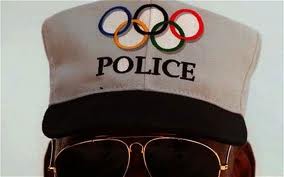Dancing Around the Edges: Renewed Focus on Gifts and Hospitality
 A confident person is willing to admit a mistake. An insecure person is unwilling to admit a mistake, even in the face of overwhelming evidence contrary to his or her argument.
A confident person is willing to admit a mistake. An insecure person is unwilling to admit a mistake, even in the face of overwhelming evidence contrary to his or her argument.
Not that my prior position was mistaken but I have argued that one of several messages in the FCPA Guidance was that companies are spending too much time, and too many resources in reviewing gifts, meals, entertainment and travel expenses in contrast to higher risk transactions involving third parties and direct interactions with foreign officials.
The FCPA Guidance cited this disparate resource allocation as an indication of a company’s failure to design a compliance program in relation to a specific risk assessment. One quick way to run afoul of the FCPA Guidance is to expend inordinate resources to review gifts and hospitality than justified by the risk.
Recent events remind us, however, that we cannot completely ignore gifts and hospitality risks. While it is always important to prevent bribes paid directly by employees and third parties, gifts, hospitality and hiring of relatives can also be used to confer benefits on foreign officials.
The BHP Billiton investigation supports this point since the FCPA investigation started with government examination of BHP Billiton’s gifts and hospitality expenditures during the 2008 Olympic Games in Beijing.
BHP Billiton expended considerable sums in hospitality before and during the games. The company hosted guests in function rooms in a new hotel in Beijing where it booked rooms for the two weeks of Olympic Games. The guests included a number of high-ranking Chinese officials involved in the steel industry. BHP Billiton’s largest market for iron ore is China. Guests were provided with tickets to the Olympic Games, accommodations at the hotel and tickets to concerts, as well as food, drink and entertainment at the various functions
The FCPA Guidance provided some bright line guidance on gifts and hospitality expenses. On the wrong side, the FCPA Guidance listed the following prohibited gifts and hospitality expenses:
- a $12,000 birthday trip for a government decision-maker from Mexico that included visits to wineries and dinners;
- $10,000 spent on dinners, drinks, and entertainment for a government official;
- a trip to Italy for eight Iraqi government officials that consisted primarily of sightseeing and included $1,000 in “pocket money” for each official;
- a trip to Paris for a government official and his wife that consisted primarily of touring activities via a chauffeur-driven vehicle.
From these examples, it is easy to see how DOJ/SEC may have concerns about BHP Billiton’s gifts and hospitality during the Beijing Olympics. The expenses under investigation almost certainly exceeded $10,000, a high threshold for distinguishing between proper and improper gifts and hospitality.
 My advice to companies continues to be much the same – focus resources on activities identified through the risk assessment process. BHP Billiton is recognized to have one of the best anti-corruption compliance programs. The lapse in supervision of its gifts and hospitality activities surrounding the 2008 Olympics is inexplicable given the significant risks which are easily identified in any risk assessment process focusing on major events such as the Olympics, World Cup or any major international event.
My advice to companies continues to be much the same – focus resources on activities identified through the risk assessment process. BHP Billiton is recognized to have one of the best anti-corruption compliance programs. The lapse in supervision of its gifts and hospitality activities surrounding the 2008 Olympics is inexplicable given the significant risks which are easily identified in any risk assessment process focusing on major events such as the Olympics, World Cup or any major international event.
















1 Response
[…] an open letter from David Green. Tom Fox begins a series on supply chain compliance. Mike Volkov dances on the […]